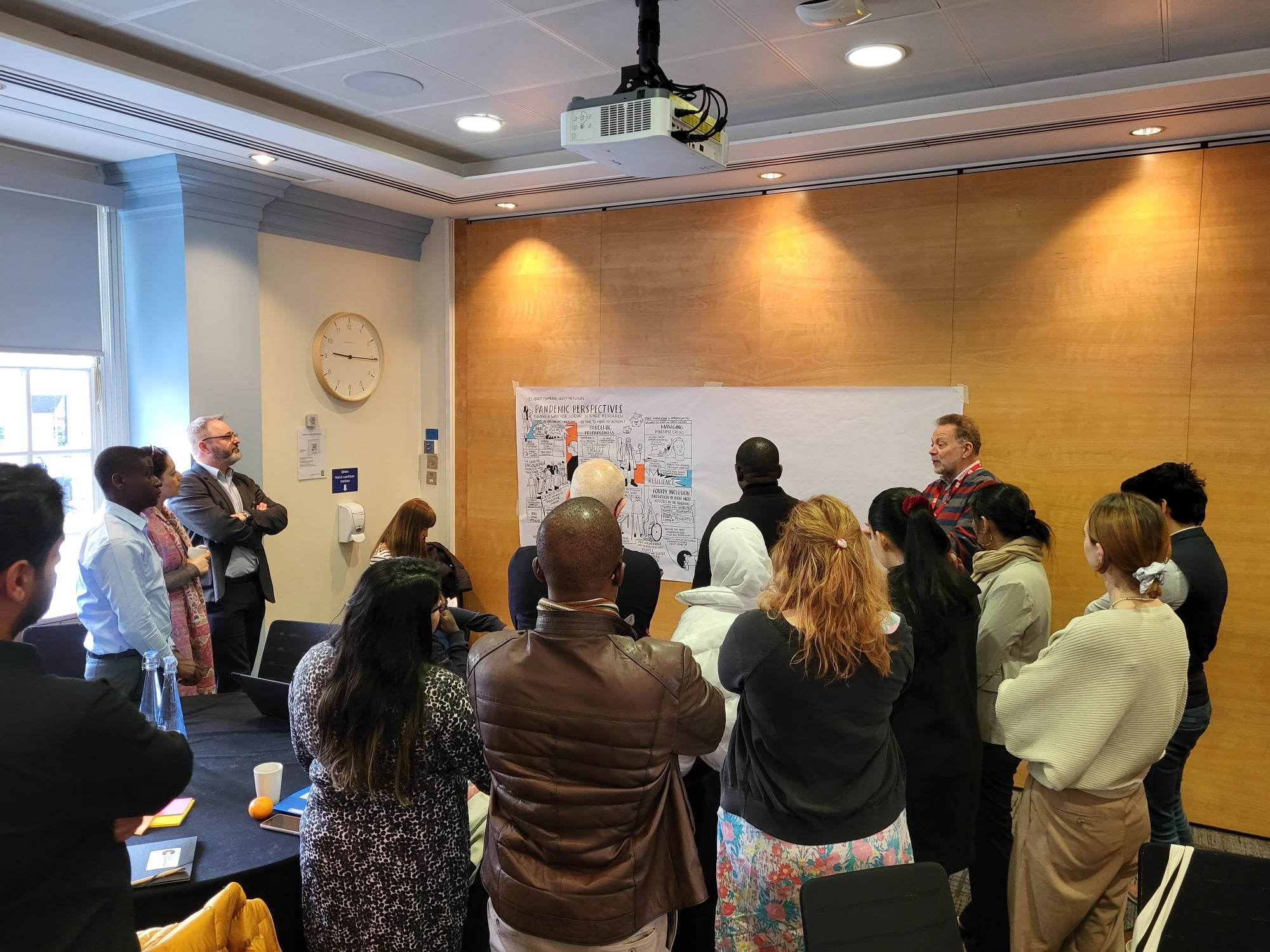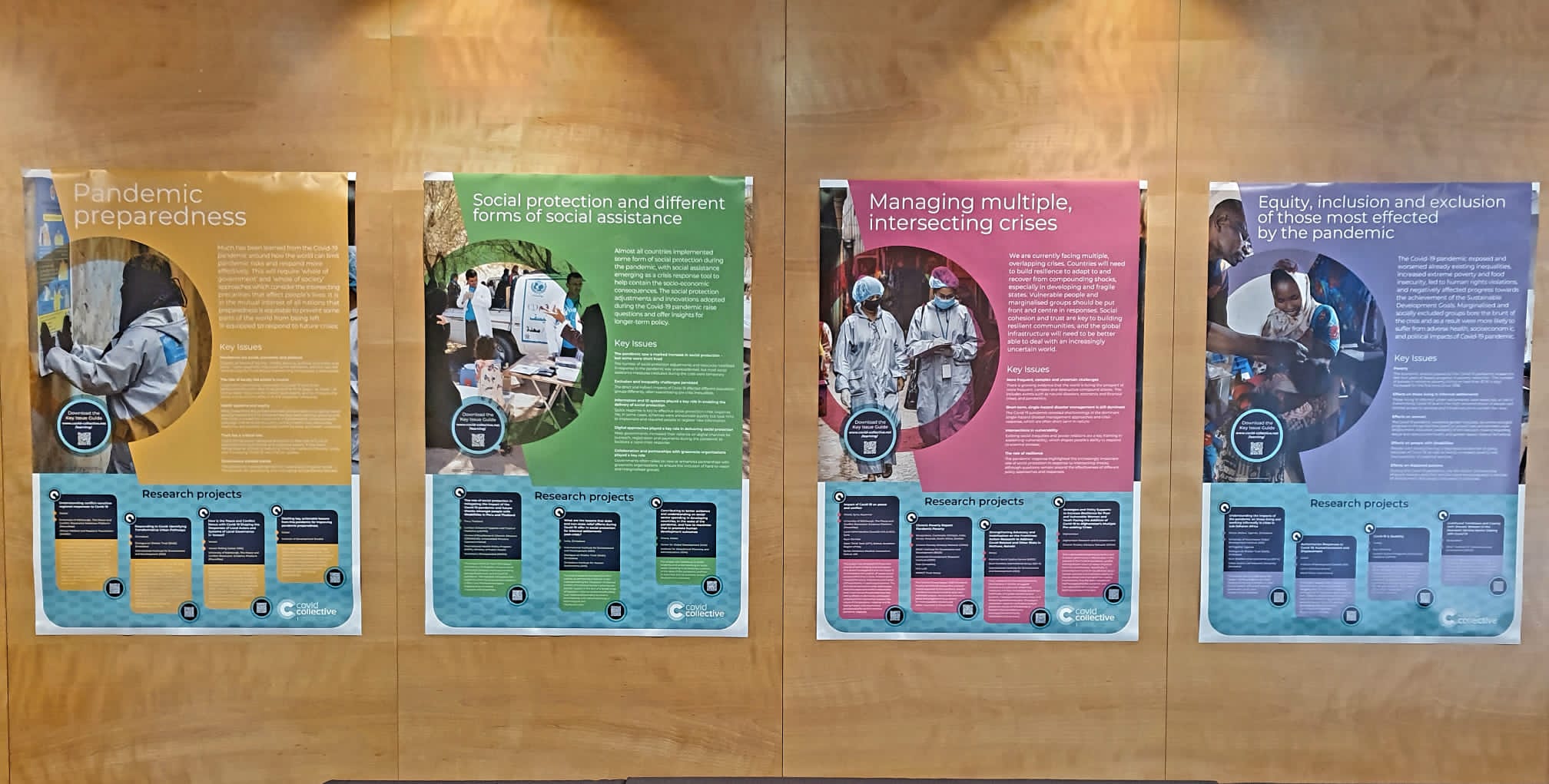The impact of the Covid-19 pandemic has been far-reaching, far beyond the tragic loss of life itself. Yet it is just one of many other crises that also affect lives and livelihoods on a daily basis for people around the world. As reflection continues on how responses to the pandemic played out in different contexts, new questions emerge, particularly on how we can respond to multiple crises whilst in a state of perpetual and rapid change.
As the planet and its people face a wide range of social, political and environmental threats, the development community must identify and create core building blocks that are needed to increase resilience to prepare for future pandemics. To achieve these goals, research is vital, as are the collaborative and equitable research partnerships that play a key role in offering insight, direction and evidence to inform this process.
Supported by the UK government’s Foreign, Commonwealth & Development Office (FCDO), the Covid Collective brought together the expertise of UK- and Southern-based research partner organisations to offer a rapid social science research response to inform decision-making on some of the most pressing Covid-19-related development challenges. Over the past 3 years, it has consistently provided an array of concrete examples of how researchers have demonstrated agility and adaptation in a range of contexts; offered insights and lessons for research, conceptually and practically; and provided potential directions for policy and decision-making around research prioritisation, funding, and support.
The Covid Collective began in mid-2020 with the recognition that the global Covid-19 pandemic was, and continues to be for many, an unprecedented crisis requiring rapid generation of policy-relevant evidence to inform decision-making as we move from crisis to recovery phase and beyond. It had four main objectives:
- Co-generation of research and evidence on Covid-19 related development challenges.
- Advocate for Covid Collective research and evidence to inform policy and practice regarding the response to the pandemic.
- Facilitate collaboration, collective action and mutual learning.
- Promote the integration of social science to catalyse transformative action in response to Covid-19.
Collaboration was key
Given the scale of the challenge, we wanted the Collective – as its name suggests – to be highly collaborative, involving effective partnerships and engagement. We saw a need for transformations in perspective, worldview, and practice, and we believed that this could be achieved through a genuine integration of social science alongside other scientific approaches being adopted to address this global crisis. Since its inception with the participation of eight core members, the Covid Collective grew by mid-2023 to 28 partners, undertaking 56 projects in 34 countries.
Along the way, there were significant challenges in carrying out research due to restrictions on movement, and a changing, dynamic situation that in some countries included outbreaks of conflict. Researchers reflected on these challenges and shared important lessons on research methodologies and approaches as well as on the findings from their work, through different forms of engagement and dialogue facilitated by the Collective. During the last three years, they have provided important real-time evidence, data, and analysis; and generated compelling, research-based arguments and options for doing things differently in a recovery period and beyond.
A radical transformation of development
The Covid Collective has in many ways confirmed a wider reality. The pandemic has created an unprecedented crisis for development with highly uncertain outcomes, affecting and requiring responses from all countries. Dominant development models are being undone, but seeds of hope are also emerging for a radical transformation of development. The Collective’s research shows in multiple ways how Covid-19 is threatening livelihoods, economies, and societies. Responses have exposed, and potentially deepened, foundational cracks in society, heightening fragilities and vulnerabilities in systems of all kinds. The impact has played out, and continues to do so, at local, national, and global scales.
Whilst the Collective’s collaborators, and the many communities and organisations they work with, have helped to identify strategies and approaches to address short- and mid-term needs and challenges, they have also demonstrated that this is a time of opportunity. We are learning together about what could lead to a genuine transformation of ideas, policies, programmes, and practices. We are seeing collective urgency in fostering collaborative and comparative learning across the experience of different countries and localities; and in finding ways to avoid returning (via recovery) to conditions that do not serve us well. We have shared examples of the evidence generated through a collection of learning outputs, including two special issues of the IDS Bulletin, and in a series of helpdesk reports that were produced in real time as the pandemic raged.
Thematic lessons
The Covid Collective has also produced seven Key Issues Guides, that we hope readers will find a valuable summary of some of the most important lessons learned.
Although the Covid Collective has ended formally as a project, its partners are continuing to finalise and make available the results of their research. Their findings and wider sets of insights about what we have learned from the experience of the pandemic, and what our evidence suggests should be done differently in the future, will be shared with different audiences in the months to come. Our website will remain live for some time, and we encourage readers to access and read the wealth of material there.
Most importantly, the spirit of the Covid Collective lives on in terms of our aspirations for social sciences and the co-created knowledge generated to be an ongoing catalyst for progressive change and societal transformation. It will also, we hope, survive and thrive through our ambition at IDS for research partnerships and collaborations themselves to be equitable and inclusive. We express our gratitude to all those who have supported, and participated in, the Covid Collective over the last 3 years, and we look forward to continuing and building upon the relationships that have been so central to the outcomes of this project.

